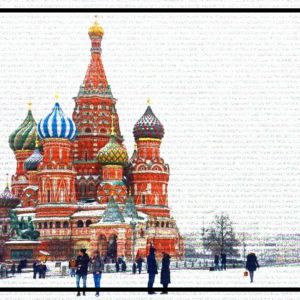In a recent development, Russia has imposed a ban on crypto mining in six regions from January 1, 2025. Notably, the restrictions will be imposed on the regions for six years and will be in effect till March 15, 2031. This development also comes just after Russian lawmakers proposed creating a Bitcoin Strategic Reserve amid a global shifting focus toward the flagship crypto. Russia Imposes Six-Year Crypto Mining Ban According to a report by the TASS Russian News Agency , the Russian Government has imposed a six-year crypto mining ban in six regions. The affected regions include Dagestan, Chechnya, and the Donetsk and Lugansk People’s Republics, among others. In addition, temporary bans will apply to specific zones in Irkutsk and Zabaikalsky during peak energy consumption periods, particularly in winter months. The Russian government asserts the restrictions aim to balance regional energy demands while addressing disparities in electricity pricing. Notably, experts highlight the interconnectedness of electricity shortages and pricing benefits in certain regions. Sergey Kolobanov, an energy sector expert, pointed out how low electricity costs in some areas are offset by higher costs for other consumers across Russia. Similarly, Vladimir Klimanov, a regional policy specialist, emphasized the need for equitable electricity pricing nationwide. The legal framework for mining in Russia has recently undergone changes. As of November 2024, mining is legal but requires individuals and companies to register with the Federal Tax Service (FTS). Those mining within 6,000 kWh per month are exempt from registration, ensuring small-scale miners remain unaffected. Bitcoin Strategic Reserve Anticipation Soars This ban aligns with Russia’s broader efforts to integrate digital currencies into its financial strategy. Lawmaker Anton Tkachev has recently proposed the creation of a Bitcoin Strategic Reserve to mitigate risks posed by traditional foreign exchange reserves. Highlighting the vulnerabilities of fiat reserves to inflation and sanctions, Tkachev suggested Bitcoin offers a resilient alternative, as it operates independently of centralized controls. He argued that digital currencies provide protection against geopolitical uncertainties and ensure financial stability in a sanctions-laden environment. The move reflects Russia’s recognition of Bitcoin’s potential to act as a hedge against economic challenges while embracing a decentralized future. On the other hand, it also comes after President Vladimir Putin signed a crypto taxation law in late November this year. This law officially recognizes digital assets as property. The post Russia Bans Crypto Mining In 6 Regions Amid Bitcoin Strategic Reserve Anticipation appeared first on CoinGape .





















